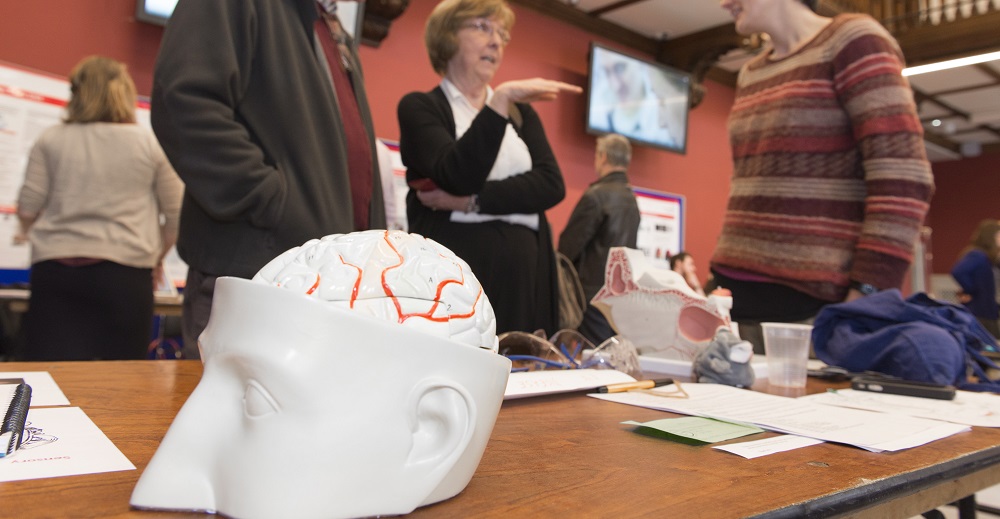
How do we perceive pain? How does light affect out mood? Can sound affect the taste of food? Do genes make some people more sociable? All these questions – and more – will be answered during Oxford’s Brain Awareness Week, running from 14 – 20 March.
A series of interactive activities and public lectures will give people a chance to find out more about the way our brain works and some of the more surprising effects its complex mechanisms. There’s even an opportunity to take part in psychological research.
Nicholas Irving, co-ordinator of Oxford Neuroscience, said: “The brain is always fascinating, sometimes confounding and occasionally downright strange. If you want to know your own mind better, these events are for you.”
Brain Awareness Week is supported by the University of Oxford and the NIHR Oxford Biomedical Research Centre.
For more information and to book tickets visit the Oxford Neuroscience website.
The free events include:
Public talk: ‘Our Perception of Pain’, Professor Irene Tracey
Museum of Natural History, Oxford
Tuesday 15 March 2016, 19.00–20.30 (Booking required, tickets free)
Professor Irene Tracey addresses issues including: Can we really see someone’s pain? Is it true that you get the pain you expect? How do anaesthetics produce altered states of consciousness so you don’t feel pain?
Interactive activities: Light, Sleep & Brain Rhythms
Ashmolean Museum, Oxford
Thursday 17 March 2016, 10.00–14.00
Learn more about how our brains are affected by light and dark, and what this means for our sleep.
Public talk: ‘Gastrophysics’, Professor Charles Spence
Museum of the History of Science, Oxford
Thursday 17 March 2016, 19.00–20.30
Professor Charles Spence on the world of ‘multisensory dining’: how taste and soundscapes combine to shape our eating experience.
Interactive research: The Genetics of Being Social
Oxford University Museum of Natural History, Oxford
Saturday 19 March 2016, 10.00–17.00 & Sunday 20 March 2016, 13.00–17.00
Why do some of us find it easier than others to understand and get along with people? Help researchers from Oxford University’s Department of Experimental Psychology test if it’s all in your genes. This drop-in event is for ages 18+.
Interactive activities: Brain Hunt
Ashmolean Museum, Oxford
Saturday 19 & Sunday 20 March 2016, 10.00–16.00
A packed programme of activities for all ages in various parts of the Museum. Find out about the physical, soulful, mechanical and creative brain!
Public talk: ‘The Visual Brain – The House of Deceits of the Sight’, Professor Christopher Kennard
Ashmolean Museum, Oxford
Saturday 19 March 2016, 12.00
Come and find out more from the Head of the Nuffield Department of Clinical Neurosciences, an expert in visual perception – what we see and what we think we do.
Interactive activities: Brain Aware
Museum of the History of Science, Oxford
Sunday 20 March 2016, 12.00–17.00
An afternoon with Oxford researchers, suitable for age six and upwards.